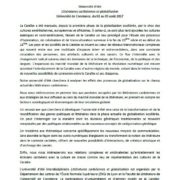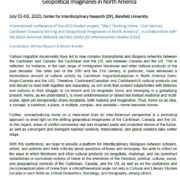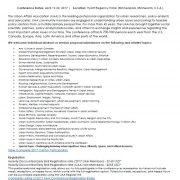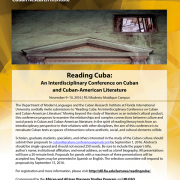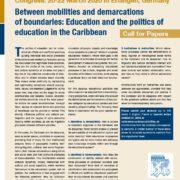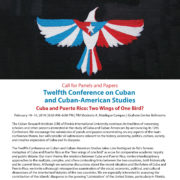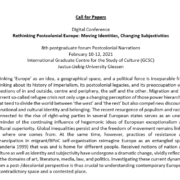Université d’été „Littératures caribéennes et globalisation“ — Escuela de Verano „Literaturas caribeñas y globalización“ — Summer School Caribbean „Literature and Globalisation“
full CfP including french and spanish version: cfp_summer-school_carib_fr_esp_eng-1
Since the initial phase of accelerated globalisation, the Caribbean has been affected by the clash of Amerindian, European and African cultures. Added to these later on were Asian and North American cultures, making the Caribbean a unique place in the study of hybridisation, creolisation and transculturation processes that have arisen since the end of the 20th and beginning of 21st centuries. Countries in the Caribbean, and their respective societies, are at the heart of complex transnational networks that tie together a multitude of inter- and extra-Caribbean spaces within a constant circulation of people, cultural artefacts and knowledge. This flux has intensified with the radical changes that have come about in the fields of technology, economics, politics, and languages. The expansion of the world wide and digital revolution have once again highlighted how the Caribbean is interwoven with other parts of the world, creating at the same time new possibilities of connection between the Caribbean and its other diasporas.
Our summer school will attempt to analyse effect of globalisation processes on the current field of Caribbean literature.
Firstly, we will look at the position occupied by Caribbean literature and at the various strategies used to promote it on the international literature market, bearing in mind all the while the sociological and economic factors that come along with its global distribution.
A second line of research that the summer school will attempt to develop will be that of the transformation and re-codification of poetic and literary genres in the current phase of accelerated globalisation.
A third line of research will focus specifically on new means of communication. It will look at how digital tools have expanded or transformed the context of literature within the Caribbean context, offering up new possibilities for interaction, artistic creation and archiving of knowledge.
Finally, we will look at the complex and ambivalent relationships that Caribbean writers maintain with mass culture as a place for representing the various cultures of the Caribbean.
The interdisciplinary summer school Caribbean literature and globalisation is organised by the Literature Department of the Ecole Normale Supérieure in Lyon (ENS) and the Literature Faculty of the University of Constance. Academics and guest artists from the Caribbean, Germany and the United States will participate in the summer school.
Speakers:
Kelly Baker Josephs (York College, CUNY/ Williams College)
Gesine Müller (Université de Cologne)
Catalina Quesada Gómez (University of Miami)
This summer university will include content from Literary Studies and Cultural & Sociological Studies faculties, and will be aimed at Master’s as well as doctorate students from the disciplines in question. Participants will have the opportunity to improve and extend their individual knowledge of Caribbean Studies and to discuss their personal plans (for example, their university work or theses).
Participants of the summer school will receive a certificate of attendance. Furthermore, master’s students from ENS Lyon and those from the University of Constance will be able to get their participation in the summer school approved as a research conference for 6 ECTS/5 ECTS.
Participants will have to prove that they have a good level in English and French or Castilian, as well as good university marks, which should be proven by a transcript of their master’s degree in one of the aforementioned disciplines. Alternatively, for those who have just begun a doctorate, they can submit an acceptance letter confirming their status as a doctorate student.
Potential students should send a covering letter in English, French or Castilian (about 2 pages long, Word or PDF, 1.5 line spacing, font size 12) detailing the aforementioned skills as well as their personal motivation and how this fits in with the specialisms offered by the summer university. The final date for applications is 28 February 2017 and these should be sent to miriam.lay-brander@uni-konstanz.de and cyril.vettorato@ens-lyon.fr .

